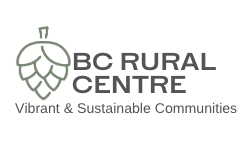
How to Encourage More Family Doctors
I am beginning to think I know how the dinosaurs felt, watching the comet hurtle towards Earth…
I am a family doctor, and unless there is major primary care reform in this province, I may be one of a dying breed.
Never, in my 20 years of practice in B.C., have I seen family medicine in crisis as it is now. Trust me, it is not a new issue.
The writing has been on the wall for a long time, but we have been so busy working 70 hours a week, caring for patients, and trying to keep our small businesses afloat that we have stood by and watched government after government allow further erosion of primary care with no meaningful change.
I have watched family medicine residents I have trained choose careers other than community family medicine in increasing numbers, because really, why would they choose to jump ON the sinking ship?
I know many physicians who, themselves, do not have a family doctor and have little hope of finding one; when my family doctor retires, I have no doubt my family and I will join the 700,000 (and steadily increasing) people in this province with no family physician.
I have watched valued and respected colleagues agonize over how they can continue to offer care to their patients but finally walk away from their practices, thoroughly burnt out and utterly demoralized.
Sit down with any family doctor currently running a practice offering longitudinal care in this province, and we will be able to tell you where the problems with the current system lie, and what changes would be effective to stop the hemorrhaging of family doctors out of family medicine.
The trouble is it feels like no one with the power to make effective change is listening. Here are a few ideas I would offer up if I could sit down and have a chat with the health minister over a cup of coffee:
Pay us a wage commensurate to our training and professional status. Family physicians in B.C. are the second-lowest paid in the country, and as we all know, B.C. has the highest cost of living.
The fees paid to doctors have not increased in pace with the cost of living. Most have of us have paid for at least eight to 10 years of university on our journey to becoming a doctor, which translates to massive student loan debt.
Before we can even bill a dollar for patient care, we have to spend upwards of $7,000 annually on professional licensing fees, memberships and malpractice insurance.
Fair compensation for family doctors would still be good value for health care dollars invested. One study showed that people with a family doctor are 35 percent less likely to be admitted to hospital. It has been proven over and over that, a patient with a family doctor costs the healthcare system thousands of dollars less annually than a similar unattached patient.
Either pay our overhead, so we are free to practise medicine, or allow us to compete in the marketplace by balance billing or similar.
Unlike other small businesses, which can increase their fees to cover increased overhead, our income is limited by the government. Trust me, we would all much rather be practising medicine, which is what we were trained to do, than worrying about purchasing supplies, paying staff, etc.
The average family doctor visit pays about $32, and for most of us, 30-35 percent of that will go to overhead. From the remaining $21, we have to put aside money to save for our retirement, pay our own medical expenses or plan for future illness, because community family doctors do not have a pension plan, extended health benefits, paid holiday or sick leave.
I have to buy all the equipment I use to offer patient care. That flu vaccine I gave you? I bought the syringe and needle out of the visit fee I will get paid to see you.
The $3,000 autoclave I use to sterilize the metal instruments I use for removing your cancerous mole also came out of my paycheque, as did the instruments, the dressing, the suture material … I think you see where this is going.
Stop with the paperwork! I didn’t spend 11 years in university after high school training to write sick notes or fill out insurance forms. Let me diagnose and treat disease, and then maybe, have an hour or two to spend with my family in the evening.
While I appreciate the Urgent Primary Care Centres are shiny and new, please understand they are not a replacement for the longitudinal care of family doctors.
They have actually driven our walk-in clinics out of business, as a solo physician working fee-for-service can never compete with a Health Authority contract, even though the private walk-in clinics see many more patients annually than the UPCCs do.
Find a way to keep family physicians in family medicine. Family doctors are well-trained generalists, and therefore have many doors open to choose from, but sadly, the door to community family practice is covered in cobwebs from no one choosing it anymore when there are so many more attractive options.
The government might proudly declare that UBC is graduating about 170 doctors from family medicine training programs each year. But the vast majority will become hospitalists or subspecialize, do surgical assisting or work in private clinics, work for corporate virtual clinics like Babylon and Maple, or move to other provinces or the U.S. where they are more respected and fairly compensated.
What other job insists that you be available 24 hours a day, seven days a week, without being paid? What other job insists you work more hours unpaid than paid hours? Fee-for-service family physicians only make money when they are sitting directly in front of a patient, and they almost always will spend at least as much time behind the scenes reviewing results or writing referrals, for example, and not make a cent.
What other job demands that you have a plan for how you are going to continue doing your job after you die? (Yup, new College requirement … we have to have a plan for taking care of our patients in the event of our death!)
It is an utter privilege to be involved in the care of every patient in my practice, and all those I have cared for over the years.
Family medicine is a rewarding career, and I am glad I chose it, but it is no longer attracting new graduates.
Even the physicians entering family medicine residency programs will not finish as community family physicians because they have massive student loan debt, would love to one day be able to afford a house of their own, and (gasp!) maybe even achieve a little work-life balance.
There are so many other fields of medicine that will offer up to twice the income, without the overhead, paperwork, and hours of unpaid (and posthumous) work.
Until we make family medicine the MOST attractive field for young graduates, we will continue to see the family medicine crisis worsen. I sincerely hope this government makes lasting reforms now that will stop the extinction of family medicine in B.C. before it is too late.
Now, Mr. Dix, about that cup of coffee…
Originally Posted on Times ❤️ Colonist
